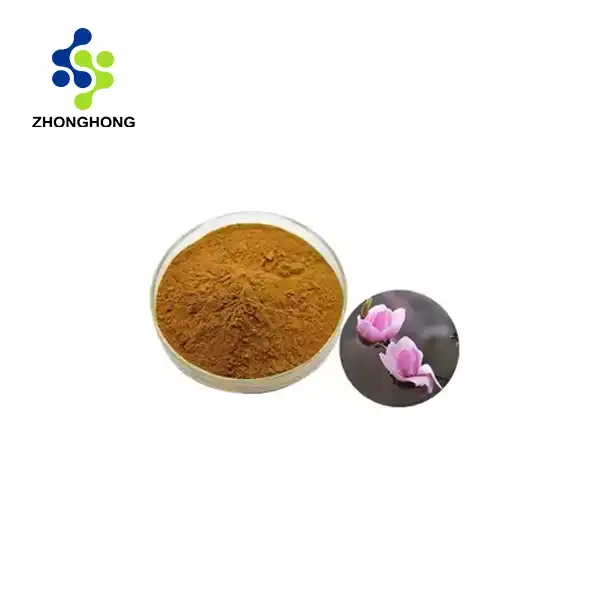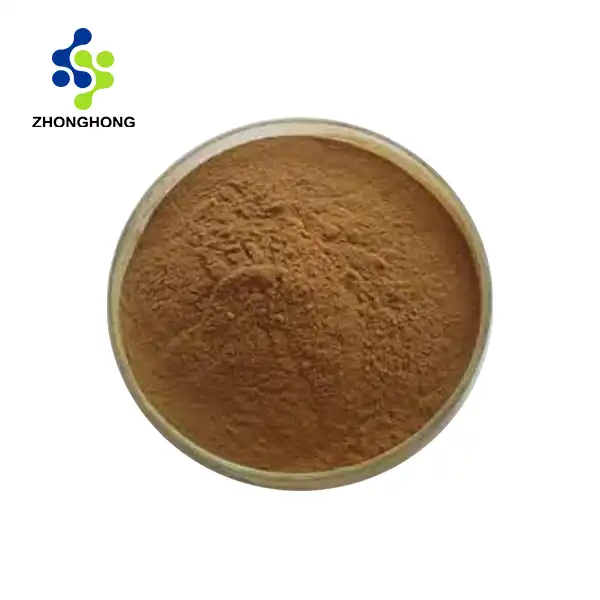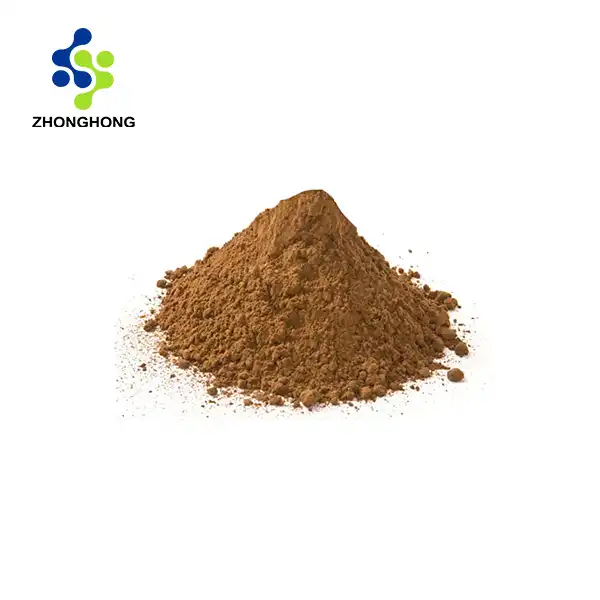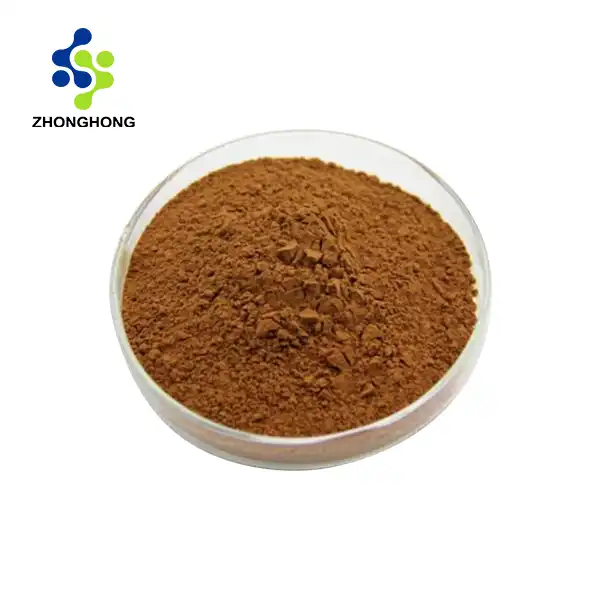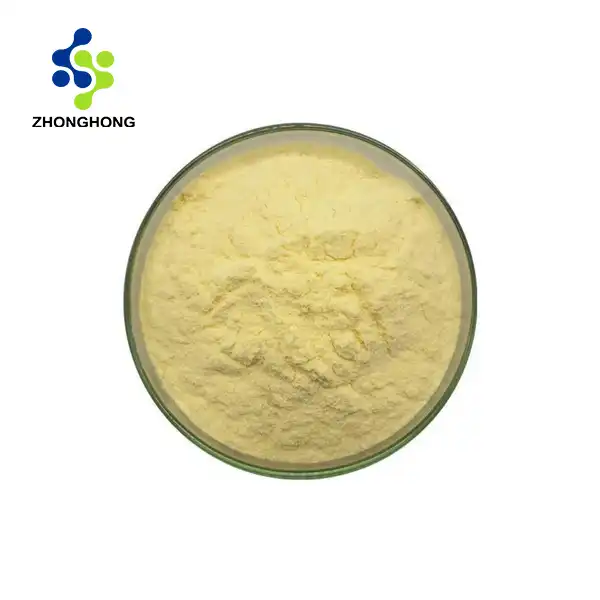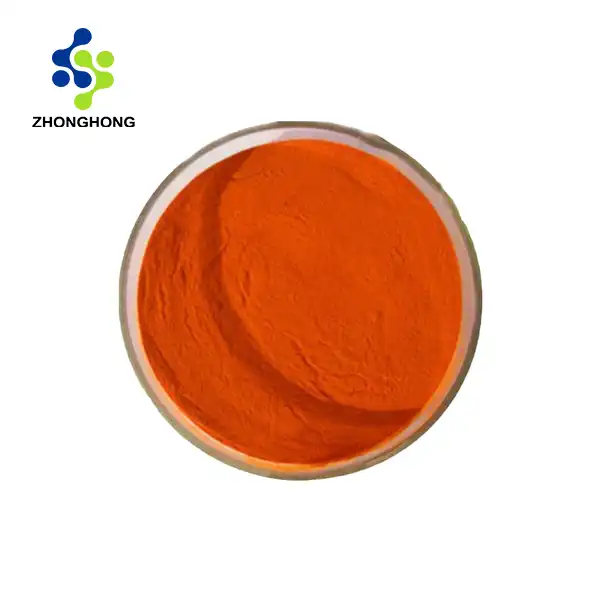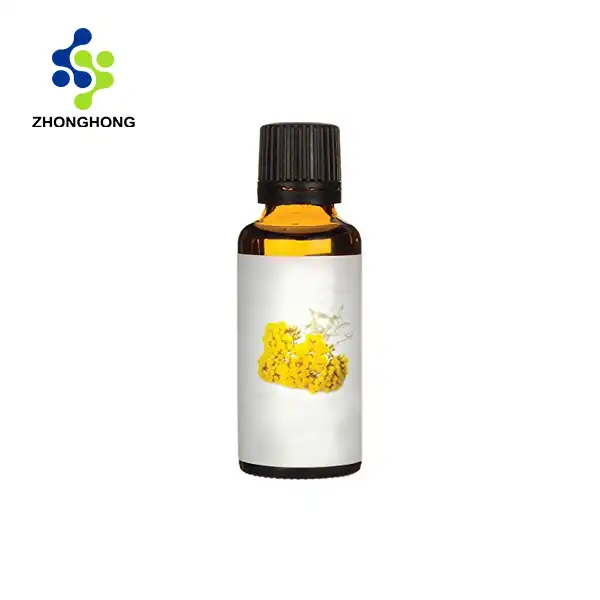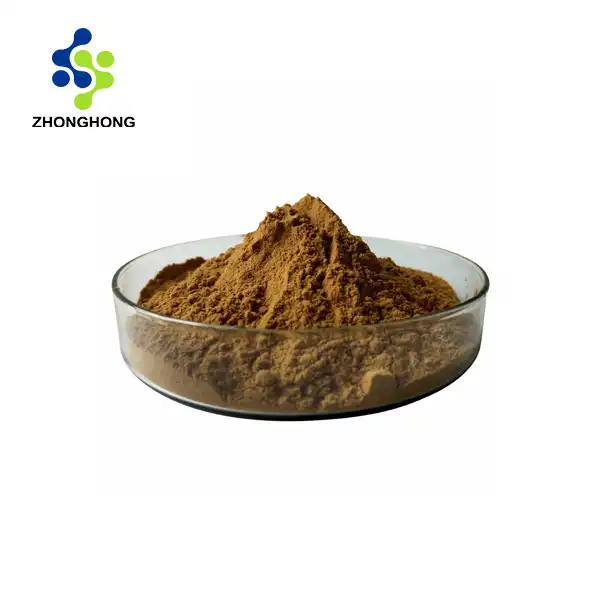Glucosamine Sulfate Powder: A Natural Joint Support Solution
2024-11-28 19:10:30
Are you experiencing joint pain or stiffness that's impacting your daily life? You're not alone. Millions of people worldwide struggle with joint issues, often searching for natural remedies to alleviate discomfort and improve mobility. Enter glucosamine sulfate powder – a popular supplement that's been making waves in the world of joint health. In this comprehensive guide, we'll explore how this natural compound could be the key to unlocking better joint function and a more active lifestyle.
How Glucosamine Helps with Joint Pain and Mobility?
Glucosamine is a naturally occurring compound in our bodies, playing a crucial role in maintaining healthy cartilage – the flexible tissue that cushions our joints. As we age, our natural glucosamine levels can decrease, potentially leading to joint discomfort and reduced mobility. This is where glucosamine sulfate powder supplements come into play.
Supplementing with glucosamine sulfate powder may offer several benefits for joint health:
- Cartilage Support: Glucosamine is a building block for cartilage formation, potentially helping to maintain and repair this vital tissue.
- Inflammation Reduction: Some studies suggest that glucosamine may have anti-inflammatory properties, which could help alleviate joint pain and swelling.
- Improved Mobility: By supporting cartilage health and reducing inflammation, glucosamine sulfate powder may contribute to better overall joint function and mobility.
- Slowing Joint Degeneration: Regular supplementation might help slow down the natural wear and tear on joints, particularly in individuals with osteoarthritis.
Many users report experiencing noticeable improvements in joint comfort and flexibility after incorporating glucosamine sulfate powder into their daily routine. While individual results may vary, the potential benefits make it a popular choice for those seeking natural joint support.
The Science Behind Glucosamine's Effectiveness
The efficacy of glucosamine sulfate powder has been the subject of numerous scientific studies, with researchers examining its potential impact on joint health from various angles. Let's delve into some of the key findings that shed light on how this supplement may work in the body:
Cartilage Synthesis and Protection
Research suggests that glucosamine plays a vital role in the synthesis of glycosaminoglycans (GAGs) and proteoglycans – essential components of cartilage structure. By providing the body with additional glucosamine, supplements may support the natural production and maintenance of healthy cartilage tissue.
Anti-Inflammatory Properties
Several studies have indicated that glucosamine may possess anti-inflammatory properties. This characteristic could be particularly beneficial for individuals with osteoarthritis, as inflammation is a key factor in joint pain and degradation. By potentially reducing inflammation, glucosamine sulfate powder might help alleviate discomfort and improve joint function.
Synovial Fluid Enhancement
Glucosamine is also thought to play a role in the production of synovial fluid – the lubricating substance found in our joints. Adequate synovial fluid is crucial for smooth joint movement and shock absorption. By supporting synovial fluid production, glucosamine supplements may contribute to improved joint mobility and comfort.
Long-Term Joint Health
Some long-term studies have suggested that regular glucosamine supplementation may help slow the progression of joint degeneration, particularly in individuals with osteoarthritis. While more research is needed to fully understand this potential benefit, it presents an exciting possibility for those looking to maintain joint health over time.
It's important to note that while many studies show promising results, the scientific community continues to debate the overall effectiveness of glucosamine supplements. Factors such as dosage, formulation, and individual physiology can all play a role in how well the supplement works for each person.
Finding the Right Glucosamine Sulfate Supplement
With the growing popularity of glucosamine sulfate powder, the market is flooded with various options. Choosing the right supplement can be overwhelming, but considering a few key factors can help you make an informed decision:
Quality and Purity
Look for supplements from reputable manufacturers that prioritize quality control. Third-party testing and certifications can provide additional assurance of product purity and potency. Opting for pharmaceutical-grade glucosamine sulfate powder can ensure you're getting a high-quality supplement.
Formulation
Glucosamine supplements come in various forms, including sulfate, hydrochloride (HCl), and N-acetyl glucosamine. Some research suggests that the sulfate form may be more effective, but individual responses can vary. Consider trying different formulations to find what works best for you.
Dosage
Typical glucosamine sulfate dosages range from 1,500 to 3,000 mg per day. It's essential to follow the recommended dosage on the product label or consult with a healthcare professional to determine the right amount for your needs.
Additional Ingredients
Some glucosamine supplements include other joint-supporting compounds like chondroitin, MSM, or herbal extracts. These combinations may offer synergistic benefits, but it's important to research each component and consider potential interactions with any medications you're taking.
Form and Convenience
Glucosamine sulfate powder offers flexibility in dosing and can be easily mixed into beverages or food. However, some people may prefer capsules or tablets for convenience. Choose a form that fits well with your lifestyle and preferences to ensure consistent use.
Allergen Considerations
If you have shellfish allergies, be cautious when selecting a glucosamine supplement, as some are derived from shellfish sources. Vegetarian and vegan options are available, typically made from fermented corn or wheat.
Conclusion
Remember that while glucosamine sulfate powder shows promise for joint health, it's not a one-size-fits-all solution. It may take several weeks of consistent use before noticing any effects, and results can vary from person to person. As with any supplement, it's wise to consult with a healthcare professional before starting a new regimen, especially if you have existing health conditions or are taking medications. Incorporating glucosamine sulfate powder into your daily routine could be a step towards better joint health and improved quality of life. By understanding its potential benefits, the science behind its effectiveness, and how to choose the right supplement, you're well-equipped to make an informed decision about whether glucosamine is right for you. If you want to get more information about this product, you can contact us at liaodaohai@gmail.com.
References
1. Towheed, T. E., Maxwell, L., Anastassiades, T. P., et al. (2005). Glucosamine therapy for treating osteoarthritis. Cochrane Database of Systematic Reviews, (2), CD002946.
2. Reginster, J. Y., Deroisy, R., Rovati, L. C., et al. (2001). Long-term effects of glucosamine sulphate on osteoarthritis progression: a randomised, placebo-controlled clinical trial. The Lancet, 357(9252), 251-256.
3. Clegg, D. O., Reda, D. J., Harris, C. L., et al. (2006). Glucosamine, chondroitin sulfate, and the two in combination for painful knee osteoarthritis. New England Journal of Medicine, 354(8), 795-808.
4. Henrotin, Y., Mobasheri, A., & Marty, M. (2012). Is there any scientific evidence for the use of glucosamine in the management of human osteoarthritis? Arthritis Research & Therapy, 14(1), 201.
5. Bruyère, O., & Reginster, J. Y. (2007). Glucosamine and chondroitin sulfate as therapeutic agents for knee and hip osteoarthritis. Drugs & Aging, 24(7), 573-580.
6. Sawitzke, A. D., Shi, H., Finco, M. F., et al. (2008). The effect of glucosamine and/or chondroitin sulfate on the progression of knee osteoarthritis: a report from the glucosamine/chondroitin arthritis intervention trial. Arthritis & Rheumatism, 58(10), 3183-3191.
_1728976869676.webp)
